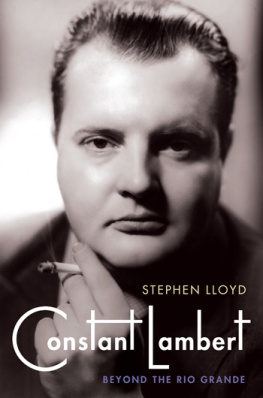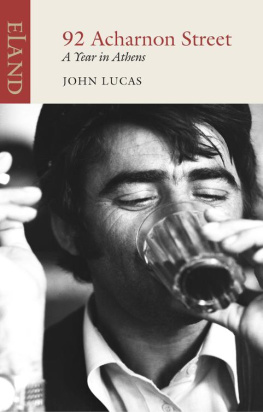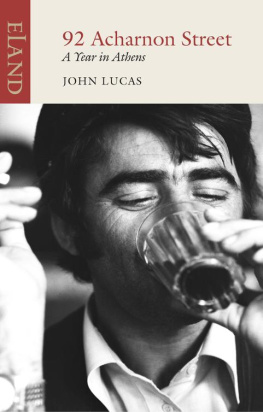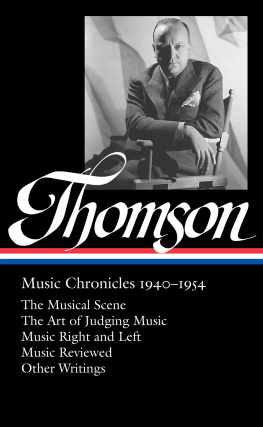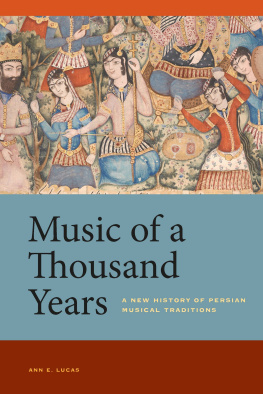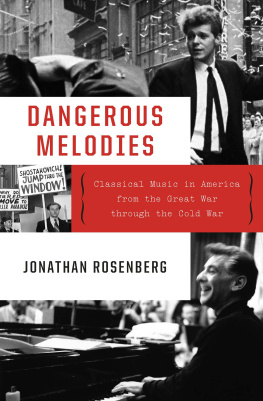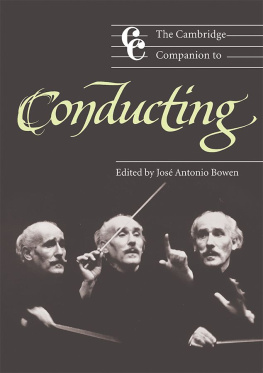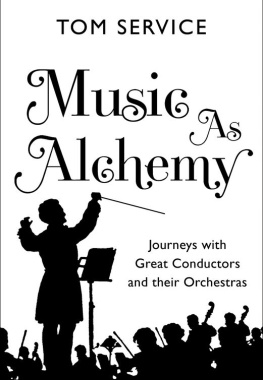
Thomas Beecham
An Obsession with Music
Thomas Beecham was one of Britains greatest conductors of orchestral music and opera as well as an entrepreneur and impresario of exceptional energy and brilliant wit. This acclaimed biography places him - musically, politically and socially - in the troubled times in which he lived and corrects the stories and myths, many of them Beechams own making, that have grown up around this uniquely gifted and controversial figure.
Drawing upon extensive research, Lucas presents new material on his early years, his complicated private life, his father's catastrophic attempt to buy a large part of Covent Garden - which brought the family to its knees financially - and the orchestras and opera companies that Beecham founded. New light is shed on his visits to Nazi Germany and his view of its leaders, as well as the much misunderstood and previously unchronicled years of the Second World War, which he spent in Australia and America.
Thomas Beecham: An Obsession with Music will remain the standard biography for years to come.
Lucas has excelled himself: this is in every way a magnificent achievementthe wit, exuberance and professionalism of his subject come across wonderfully well. Classic FM Magazine [Book of the Month, 5 Stars] .

Copyright John Lucas 2008
All Rights Reserved . Except as permitted under current legislation no part of this work may be photocopied, stored in a retrieval system, published, performed in public, adapted, broadcast, transmitted, recorded or reproduced in any form or by any means, without the prior permission of the copyright owner
The right of John Lucas to be identified as the author of this work has been asserted in accordance with sections 77 and 78 of the Copyright, Designs and Patents Act 1988
First published 2008
The Boydell Press, Woodbridge
Printed in paperback 2011
This edition published 2014
ISBN 978 1 84383 402 1 Hardback
ISBN 978 1 84383 626 1 Paperback
ISBN 978 1 78204 399 7 eBook
The Boydell Press is an imprint of Boydell & Brewer Ltd
PO Box 9, Woodbridge, Suffolk IP12 3DF, UK
and of Boydell & Brewer Inc.
668 Mt Hope Avenue, Rochester, NY 14620, USA
website: www.boydellandbrewer.com
A CIP catalogue record for this book is available from the British Library
The publisher has no responsibility for the continued existence or accuracy of URLs for external or third-party internet websites referred to in this book, and does not guarantee that any content on such websites is, or will remain, accurate or appropriate.
Preface
This new paperback edition of Thomas Beecham: An Obsession with Music is not a simple reprint of the biography first published in September 2008, nor is it a full-scale revision of it. Rather it is something between the two. Thanks to the dozens of messages I have received from readers of the first edition of the book, I have been able to follow up fresh leads in my research and, as a result, this edition, which marks the fiftieth anniversary of Beechams death, contains some extra bits of information that help to clarify the text, as well as a few thankfully very few corrections. Of these correspondents I must mention in particular Richard Abram, Cesar Dillon (Buenos Aires), Greg Dziekonski (Seattle), the late Anthony Hicks, Victor Hochhauser, Robert Matthew-Walker, Tony Noakes (Western Australia) and Nico Steffen (Amsterdam).
I first saw Beecham conduct in the late 1940s. I had witnessed Malcolm Sargent in action, and Boult and Barbirolli, and I even retain a vestigial memory of Henry Wood, but I was very young at the time and far more interested in the music that was being played than who was conducting it. The Beecham concert was at the Royal Albert Hall, and advertisements for it announced that the great man would talk about the items to be performed. Beecham walked on to the platform purposefully, stepped on to the rostrum, eyed us up and down with an air of hauteur, and paused. Ladies and gentleman, he announced in a voice pitched a bit higher than I was expecting, with the words articulated very precisely, even primly. It has been said that I shall be speaking about tonights programme. Instead, I shall let the music speak for itself. And he turned and plunged straight into the most vigorous performance of the National Anthem I had ever heard. (I had no idea that his conducting of it was famous.)
This was pure theatre, pure Beeham. He had caught the audiences attention and he held it until the end of the concert. I can still recall the magical, diaphanous effect in that first programme of Liszts symphonic poem Orpheus , with the perfect balance in the orchestra (it was the year-old Royal Philharmonic) and the subtle grading of the dynamics. Suddenly, for the first time, I was made aware that conducting was not just a matter of beating time but, at its best, an inspired act of recreation.
Beecham is arguably the finest executant musician this country has produced. He was certainly the most influential. He raised orchestral standards in Britain to an unprecedented height. He proved by example that opera was not just for the society-led coterie which, for social as much as musical reasons, attended the short summer seasons at Covent Garden, but for everyone. And, however incredible it might now seem, he was responsible for the works of Mozart and Haydn becoming staples of the concert repertory in Britain and, in Mozarts case, the operatic repertory as well.
What he was unable to do, despite his tireless advocacy, and his incomparable performances and recordings of the music, was to persuade audiences that Delius was indeed, as he claimed, the last great apostle in our time of romance, emotion and beauty in music. I recall turning up for an all-Delius concert at the Festival Hall in 1958 to find that so few people had bought tickets for it that Beecham had had to change the second half of the programme to Sibeliuss First Symphony in the hope of attracting more customers. I cannot pretend that it bothered me. Beecham was one of the best Sibelius conductors of his time, a verdict with which the composer himself concurred.
This book is an attempt to place him, musically, politically and socially, in the troubled times in which he lived. Cutting through the myths that surround his life has not been easy. His enjoyable book of memoirs, A Mingled Chime: Leaves from An Autobiography , written in a uniquely orotund and oratorical style, is often casual in its treatment of facts, while Neville Carduss brief memoir, Sir Thomas Beecham , published in the year of the conductors death, is more misleading still, though at least its author admits to inventing stories about Beecham.
Even Beechams music-making is subject to myths, the most common being that when it came to Beethovens symphonies he was an even-numbered man; that the Sturm und Drang of the odd-numbered ones did not appeal to him. Statistics show that the symphonies he conducted the most were the Seventh, Second and Third, in that order. The Eighth, alleged to be one of his favourites, comes well down the list. Beechams huffings and puffings about Beethoven he once called him the Mr Gladstone of Music can be safely ignored. His incandescent performance of the Missa solemnis , recorded at the 1937 Leeds Festival, reveals him as a Beethoven conductor to be reckoned with.
Some may miss their favourite Beecham stories here, but a number of them have proved to be apocryphal, and I have included only those I believe to be authentic (or as near as dammit). If there is a tendency now to regard Beecham as a joke-book figure, rather than the serious and hard-working musician he was, then he had only himself to blame. In old age he took to playing the role of the Old Entertainer and revelled in it, indulging audiences with speeches marked more by waggishness than wit.
Next page
